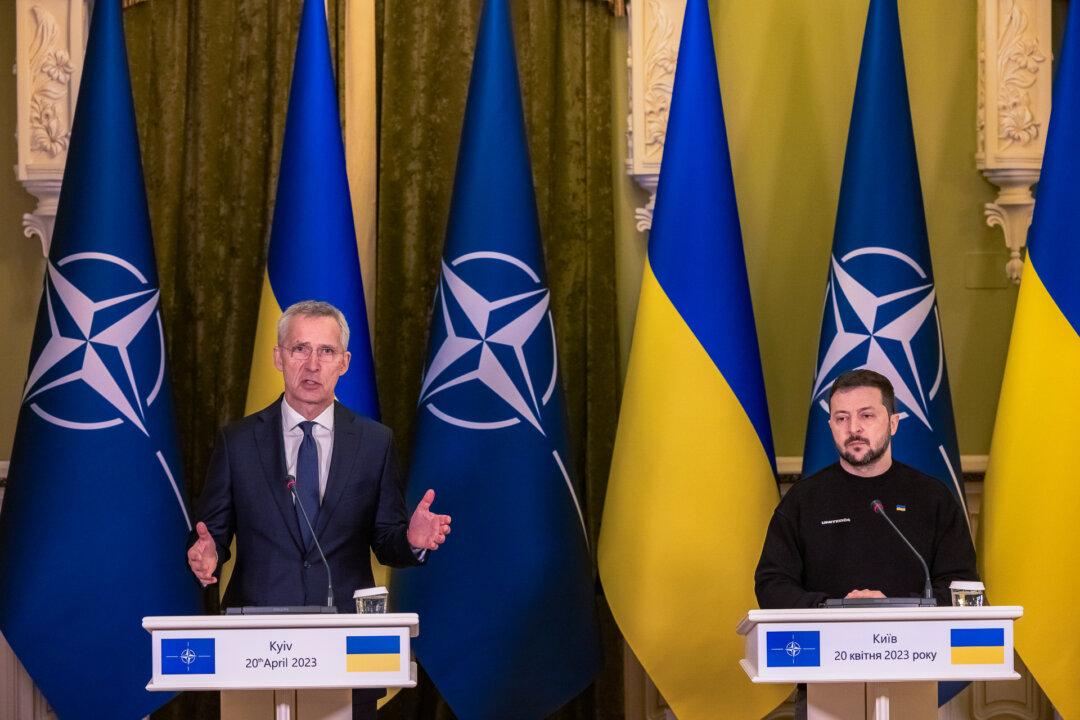As Russian forces continue to make gains on the battlefield, Ukraine’s longstanding hope of joining NATO remains in limbo—caught between vague assurances emanating from Washington and dire warnings from Moscow.
Last week, U.S. Secretary of State Antony Blinken raised eyebrows when he appeared to state unequivocally that Ukraine “will become a member of NATO.”





